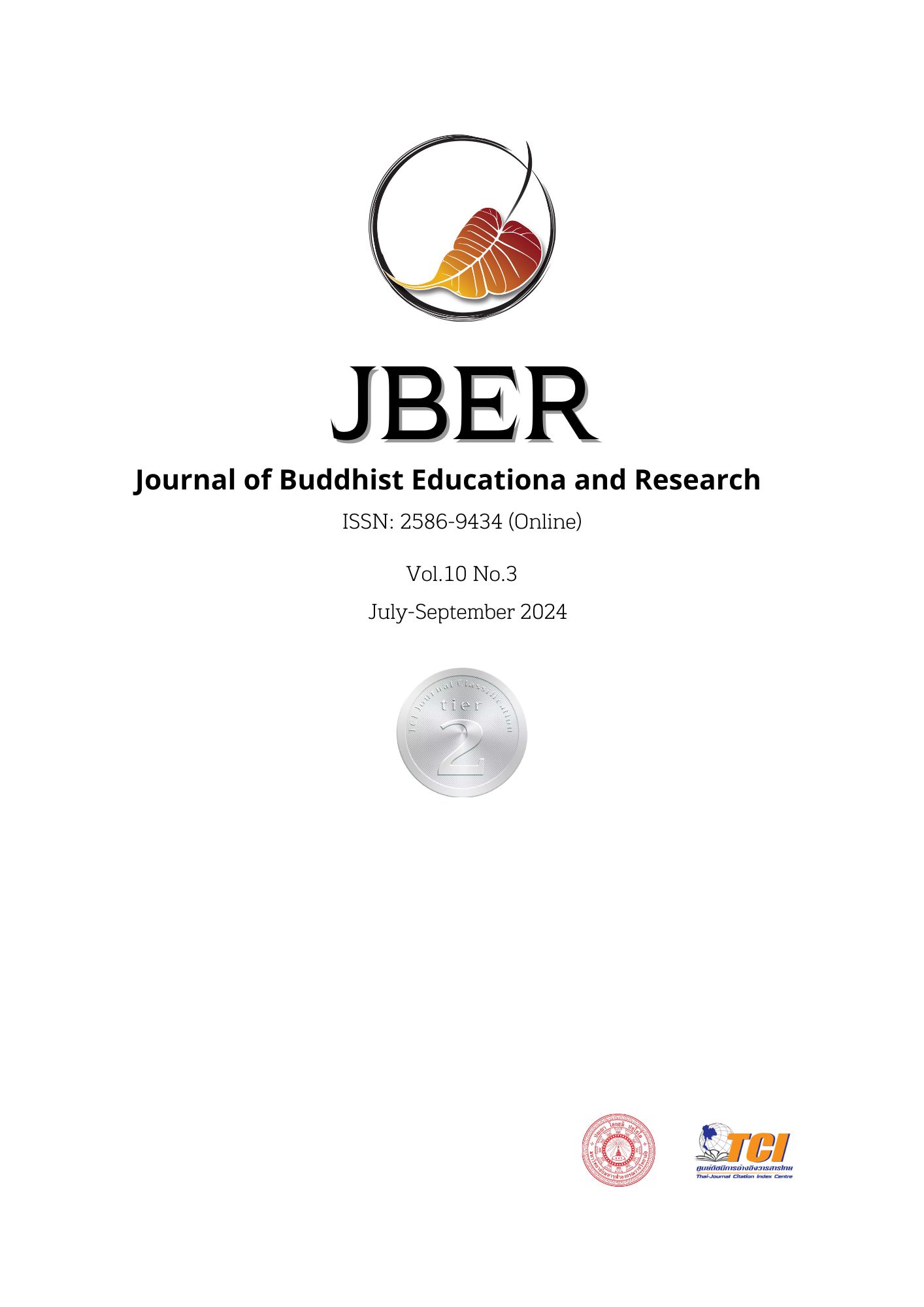A Study of Celebratory Songs for Drinking by the Buyi Ethnic Group in Guizhou Province, China
Keywords:
Buyi ethnic group, celebratory drinking songs, cultural heritage, Guizhou province, ethnomusicologyAbstract
This paper explores the historical development, current state, and challenges of preserving the Buyi ethnic group's celebratory drinking songs in Guizhou Province, China. These songs, evolving from ancient ceremonies to modern social and stage performances, are vital to Buyi cultural heritage. The research examines three forms: ceremonial, social, and stage celebratory songs, highlighting their unique characteristics and cultural significance. Using fieldwork, interviews with cultural heritage inheritors and folk singers, and theoretical frameworks from music history, ethnomusicology, and music aesthetics, the study analyzes the songs' evolution and roles in expressing etiquette, mutual blessings, and cultural promotion. Findings show the songs' diversification due to changing social functions and influences from the Central Plains Han culture. Despite their cultural richness, passing down these traditions faces challenges, exacerbated by modern societal changes and external cultural influences. The paper proposes strategies to address these issues, such as restoring traditional customs, enhancing youth engagement through education, promoting academic research and exchange, and creating new songs that reflect Buyi cultural elements while appealing to contemporary tastes. Overall, the research emphasizes preserving Buyi celebratory songs to maintain cultural identity, promote cultural exchange, and protect world cultural diversity, offering guidance for safeguarding this unique intangible cultural heritage.
References
China Folk Song Integration National Editorial Committee. (1995). China folk song integration (Guizhou volume). Beijing, China: China ISBN Center Press.
Guiyang Ethnic and Religious Affairs Bureau, & Guiyang Buyi Studies Research Association. (2005). Buyi drinking song. Guiyang, China: Internal Information.
Jiang, J. W. (2015). A brief discussion on ancient Chinese drinking songs. Literary Review, (04), 75-79.
Jin, H. W., & Ding, L. (2009). Yi mountain wine song. Gehai, (05), 122-123.
Li, H. (2013). Analysis of the social and cultural functions of Buyi folk songs in Guiyang City. Guizhou Social Sciences, (09), 163-165.
Li, J. C. (2004). Buyi Haohua Hong - Introduction to Buyi folk songs (Continued 3). Campus Song, (04), 39-38.
Li, J. (2004). Concept and classification of Buyi liquor songs. Journal of Guizhou Ethnic Studies, 22(3), 45-52.
Liu, J. (2005). Categories, characteristics, and socio-cultural functions of ethnic minority drinking songs. Journal of Hubei University for Nationalities (Philosophy and Social Sciences Edition), (02), 26-31+56.
Liu, N. (2008). Secret realm pursuit of wine and song love. Campus Song, (12), 26-30.
Liu, X. (2018). Research on the collection and sorting of Buyi folk songs in southwest Guizhou. Art Evaluation, (11), 27-29.
Luo, J. (2013). Analysis of the music style characteristics of Buyi ethnic folk songs in Guizhou. Musical Composition, (07), 134-136.
Luo, J. (2013). Analysis of the modes, rhythms, musical forms, and melodies of Buyi "Jiuge". Ethnomusicology Journal, 25(3), 110-118.
Luo, X. (2019). Dissemination of folk songs and ethnic cultural practice (Doctoral dissertation, Shanghai University). Retrieved from https://kns.cnki.net/KCMS/detail/detail.aspx?dbname=CDFDLAST2020&filename=1019249682.nh
Meng, F. Y. (2000). Zheng Su's "Academic categories, theories, methods, and purposes of ethnomusicology" in the United States. Chinese Music, (4), 19.
Pang, J. (2016). Overview of the current status of drinking song research. Tomorrow's Fashion, (11), 294.
Rice, T. (1987). Toward the removal of ethnomusicology. Ethnomusicology, (3), 480.
Shen, Q. (1986). Introduction to research methods in ethnomusicology (Part 1). Chinese Musicology, (1), 63.
Shen, Q. (1996). Ethnomusicology in China. Chinese Musicology, (3), 5-22.
Shen, Q. (2007). The integration of Buyi ethnic drinking songs and etiquette. Journal of Guizhou University (Social Sciences Edition), (06), 84-87.
Tan, W. (2021). Research on the artistic characteristics of the Buyi ethnic group's folk songs in Guizhou. Contemporary Music, (09), 105-107.
Tang, Y. T. (2005). Anthropology of music. Introduction to Musicology, (7), 263.
Wang, S. H. (2016). Rural music and customs walking in modern tourism (Master's thesis, Yangzhou University). Retrieved from https://kns.cnki.net/KCMS/detail/detail.aspx?dbname=CMFD201701&filename=1016284654.nh
Wang, X. H. (2013). Analysis of the etiquette of Buyi people's night banquet. Wine and Song Guizhou Literature and History Series, (04), 126-130.
Wei, J. Y. (2012). Analysis of the traditional form and classification, music characteristics, and style of Buyi folk songs. Journal of Xingyi Ethnic Normal University, (05), 91-96.
Wu, T. (2021). Seeking common ground while reserving differences and harmony but differences - The style and singing of Chinese minority drinking songs. Art Education, (11), 74-77.
Xue, Y. B. (2005). What is the ultimate goal of ethnomusicology. Chinese Music, (1), 48.
Yan, D. (2004). Analysis of Buyi music in southwest Guizhou. Journal of Xinghai Conservatory of Music, (02), 32-36.
Yang, D. Y. (2011). Wine song: Pictorial poetry, singing life. Ethnic Music, (06), 44-45.
Yang, Y. Y. (1988). Buyi liquor song. Guiyang, China: Guizhou People's Publishing House.
You, L. L. (2003). Guizhou ethnic liquor song in welcoming guests and hospitality. Journal of Guizhou University of Technology (Social Sciences Edition), (01), 89-94.
Yuan, S. D. (2017). On the Buyi poetry culture. Art Evaluation, (18), 21-22.
Zhang, Y. J. (1999). Buyi liquor song. Brewing Technology, (03), 79-80.
Zhao, K., Wu, Q. L., & Chen, L. M. (1988). Buyi liquor song. Guiyang, China: Guizhou Ethnic Publishing House.
Downloads
Published
How to Cite
Issue
Section
License
Copyright (c) 2024 Author(s)

This work is licensed under a Creative Commons Attribution-NonCommercial-NoDerivatives 4.0 International License.





